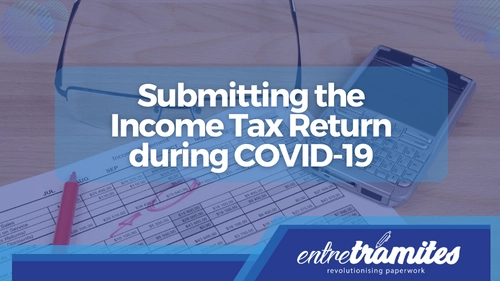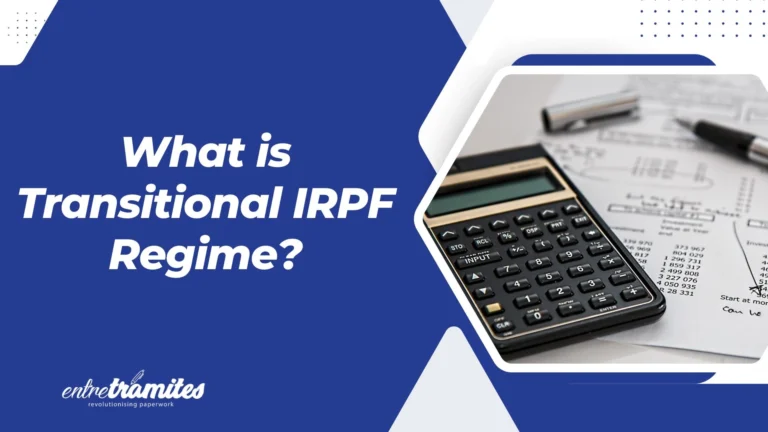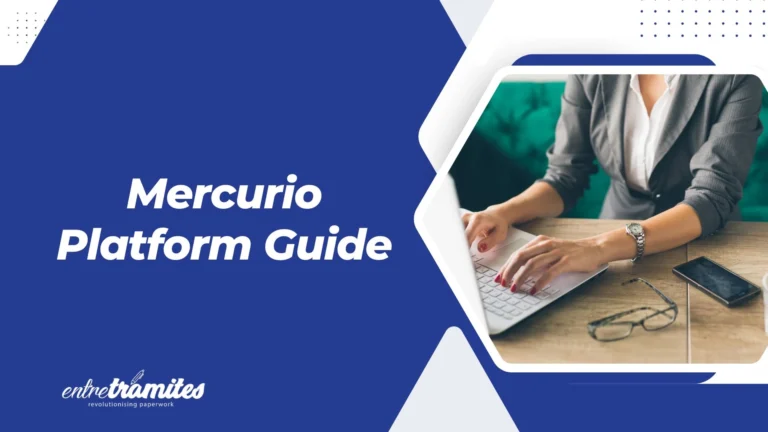The 2019 Income Tax Campaign began on 1 April and ends on 30 June. We explain the deadlines, the ways to file your tax return and some of the new features this year.
Despite the confinement due to the State of Alarm resulting from the efforts to curb the outbreak of COVID-19, the cessation of all activity that is not considered essential, and everything that we are experiencing these weeks, the 2019 Income and Wealth Tax Campaign is maintaining its normal schedule for the moment. We tell you everything you need to know about the Income Tax Return that starts this Wednesday 1 April.
YOU MAY ALSO BE INTERESTED: How to collect unemployment benefits through ERTE?
What is the calendar for the 2019 Income Tax Return?
As announced by the Tax Agency, this year’s campaign started on April 1 for the modification and presentation of draft declarations. The deadline will be extended until June 30, after the Tax Agency (AEAT) maintains the initially planned schedule despite the health crisis. This means that from April 1 you can start submitting your returns online.
Would it be a good idea to extend the deadline until September?
Maintaining these dates has generated controversy. In fact, the Tax Technicians (Gestha) have asked the Tax Agency to extend the closing of this year’s campaign to September.
Gestha believes that in this way older people – who are especially those who continue to opt for face-to-face care – could receive adequate care without risks to their health in the offices.
In addition, they believe that this extension would make it easier for another 4.9 million filers to go to their tax advisor.
This would include the 3.1 million self-employed – including those in the agricultural sector – who have to collect their business documentation. Bearing in mind that in July advisors are focused on corporate tax returns and that August is traditionally a holiday month for tax consultancy as well.
In the case of this group, the technicians ask for an exceptional period so that the self-employed can renounce the module regime before April 20.
What services can I access now?
Since last March 24, taxpayers can subscribe to the Tax Agency’s app and access their tax data on the AEAT website through the REN0 service, the digital certificate or the Cl@ve PIN, as well as in the app. In addition, taxpayers can request the reference number since March 6 through the same methods.
Starting this Wednesday, users will now be able to manage their returns online, through the Renta Web processing service, and the app, as well as make use of the Income Tax Return information telephone service (91 554 87 70 or 901 33 55 33), which will remain all year round.
The Tax Agency has prepared several explanatory videos that you can consult to learn about all the options offered by its website, to understand the REN0 service, to detail what Box 505 is and how to obtain a reference, and to clarify what the Web Income service is and how it works.
When is the deadline for requesting an appointment?
The deadline to request an appointment in the Le Llamamos (We call you) Plan, by which the Tax Agency calls the taxpayer upon request, it is postponed and can be made from May 5 to June 29, online, through the app, or by telephone (91 535 73 26 or 901 12 12 24), where appointments can also be cancelled. Income campaign, as well as by telephone with personal attention (91 553 00 71 or 901 22 33 44).
Likewise, from May 5 there will be the possibility of requesting an appointment to prepare income tax returns in person at the offices of the AEAT and other collaborating entities, until June 29.
The start date for face-to-face service, by appointment, at Tax Agency offices and other collaborating entities, such as Autonomous Communities, local councils or registers, has been set for 13 May.
What do I need to know about direct debit and payment in instalments for my income tax return?
For those whose declaration is to be deposited with direct debit, the campaign will end on June 25.
If you choose to pay by direct debit only the second instalment of your Personal Income Tax Return, you can do so until 30 June. In the case of a refund, the deadline will end when the campaign ends.
June 29 will be the last day to request an appointment for telephone or office assistance and one day later, on June 30, the deadline to submit the declarations will end, thus concluding the 2019 Income and Wealth Campaign.
In addition, taxpayers may split, without interest or any surcharge, the amount of the tax debt resulting from their Personal Income Tax Return, into two parts:
- The first, is 60% of its amount, at the time of submitting the declaration.
- The second, of the remaining 40%, until November 5, 2020, inclusive.
Who is not responsible for filing the Income Tax Return?
Taxpayers who have obtained income from income exclusively in 2019 are not required to declare. In individual or joint taxation, full earnings from work with the general limit of 22,000 euros per year when they come from a single-payer.
This limit will also apply in the case of taxpayers who receive income from more than one payer and the sum of the amounts received from the second and remaining payers is the same.
In order of amount, they do not collectively exceed the amount of 1,500 euros per year or their only income from work consists of certain passive benefits.
Full income from work is also exempt with a limit of 14,000 euros per year when it comes from more than one payer. Provided that the sum of the amounts received from the second and remaining payers, in order of amount, collectively exceed the amount of 1,500 euros per year.
Taxpayers who obtain exclusively full income from work, capital or economic activities. As well as capital gains, with the joint limit of 1,000 euros per year, and capital losses of less than 500 euros, they will not have to declare either, among other cases.
What are some of the new features this year for the income tax return?
All the news of the 2019 Income Campaign, whether regulatory or management, can be consulted here. They are not affected by the COVID-19 health emergency that Spain is currently experiencing since they refer to the previous fiscal year, in this case, 2019.
In addition, the Tax Agency has published a detailed guide with everything the taxpayer needs to know about this year’s campaign. And it is usually very useful to consult the most frequently asked questions from users.
Among the new features of this year’s Income Tax draft is an important simplification with respect to the model of previous years for identifying the taxpayer’s tax domicile.
Another important novelty is the improvement in the completion of returns on real estate capital and economic activities in direct estimation.
All the information related to the properties owned by the taxpayer, whether as owner or usufructuary, has been consolidated in a single section.
Sources:
- Official website of the Tax Agency
- Union of Technicians of the Ministry of Finance (Gestha)
Do you need more information about tax obligations?
We want to listen to you and know what your questions are about the procedures you have to carry out. Count on the advice of our experts to clarify all your doubts. At Entre Trámites we invite you to learn about our services. Fill in our contact form and we will call you to help you as soon as possible, schedule a free online consultation, or simply text our WhatsApp.





